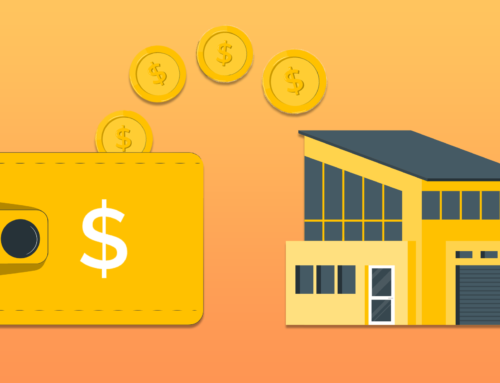I had a tough decision to make two weeks ago. A client wanted me to send a FedEx package over to him so he could take it along to review on his 2-week vacation. Upon checking, we saw that it would cost $75 to ship the package overnight!!! Good Lord that’s a lot of money! How ‘bout we send it 3-Day ground to my client’s vacation destination, for only $8 bux?
The dilemma… FedEx, a bellwether of the American economy, is in a real profit squeeze right now, driven in large part by the horrendous increase in fuel prices (hmmm… seems like I am having the same problem!). So… should I go ahead and pay $75 to ship overnight, in an effort to help keep FedEx in a better position with their expenses – or should I just spend $8, and use the more practical, and cost-effective, 3-Day solution? What would you do?
Tequila Sunrise?
In a world gone mad with “irrational exuberance”, The Hair of The Dog That Bit Youprobably seems like a logical cure for the “Night out on the town” we spent the past seven years imbibing on in the real estate markets! If the party was that good, perhaps more is better.
The thing is, sooner or later, if the headaches don’t get you – the dehydration will!
Incredibly, despite the massive dehydration we now face in the credit markets as a result of all the carousing during the World’s Longest Cocktail Party, many folks (including the Feds, and self-serving Wall Street and real estate industry “bartenders”) seem to think all we need to do is keep swilling those “Hairy Dogs”… until the market “recovers”. But here’s the deal – the market is recovering right now… and it has been for the past year.
The country went on a seven-year binge, painting the town red. Now the market is dehydrated, and going through the pain of a massive hangover. By definition, once the hangover (recovery) is over, we anticipate that the country can get back to normal. But normal is NOT waking up tomorrow and finding ourselves drunk out of our minds all over again?!
How is it that the real estate industry, the government, the Robber Barons, and the misguided souls who are looking to invest solely on lower prices, all think that a real estate recovery means propping up prices all over again??? Sure… and let’s all subsidize FedEx too!
Noise Is Not News…
Many investors have formed opinions about the real estate market, the capital markets, and the economy, based entirely on what they have read and heard from the media. Unfortunately, too many investors have let this misinformation crystallize their views to the point that they believe they can get rich simply by purchasing distressed real estate, because they fail to recognize the extent of the risks still inherent in the marketplace.
In the past month, we’ve seen headlines touting “Fire Sale Driving Sales”, and “Multiple Offers Indicate Possible Bottom”, and similar nonsensical stories appearing in the press. No such thing has truly happened, but in the most destitute of markets (Detroit and Atlanta are examples where lenders truly have “thrown in the towel” and come to their sensibilities), and even then, only on the most limited basis.
Instead we see reluctant banks putting less than 20% of their inventory out through retail real estate agents, at pricing that still doesn’t match the affordability levels for that market. And we see impatient investors diving in along with unknowledgeable retail buyers, bidding REO retail listings up from $200k asking, to $220k selling – in markets where income levels support pricing of only $150k to $165k.
We see horribly floundering markets up and down California’s Central Valley for example, where REO listings outnumber retail listings – and while the retail median list price in one community we looked at closely is $212k, versus median REO pricing of $188k… the local market income levels support pricing of $125k – in an area where 10 of the worst 11 cities in national employment rankings are located!
Hardly a fire sale! That won’t come until the investors who make unwise purchases today, are back out in the marketplace as distress property sellers themselves, 12 to 18 months from now!
Bottoms Up!
The data is in… and it’s pretty conclusive. As of May 2008, prices are down some 30% in the past 12-months – but most middle-income workers still don’t earn enough to buy a median-priced home in their hometowns.
The Center for Housing Policy recently compared housing costs in 201 metro areas with the median wages in those areas for 60 major vocations, such as police, firemen, nurses, teachers, customer service reps, officer workers, and food service personnel. For typical working people in most markets home ownership remains far out of reach, although home prices fell in 161 of those markets in the 12 months ending September 30, 2007.
This same finding surfaced at the World Economic Conference last January, and in various civic conferences around the country as early as last summer. (As reported in my article, Priced to Own-Probabilities Producing Profits at: https://www.creuniversity.com/articles/cash-flow-for-two-years-with-no-money-down in February 2008).
The study also looked at rental affordability and the picture here was more positive – for renters, but not investors! We see rents running at an all-time low in relation to the cost of home ownership (in markets such as San Diego, Bend, Portland, Seattle, Phoenix, and various other depressed areas, rents range as low as 40% of the monthly costs of owning the average home in the same area). That my friends, is a lot of negative cash flow for investors!
Where’s The Bottom?
The problem resembles a knot: defaults and foreclosures are feeding a glut of houses on the market; stricter lending requirements are keeping many buyers out; the real estate market, combined with declining employment levels and surging energy costs, is killing consumer confidence; and all of the above is feeding into weaker economic conditions, which are contributing to a deteriorating housing market.
In many parts of the country, residential real estate prices are predicted to roll back perhaps to 2002 levels. In some parts, 2000 levels. In still others, perhaps as far down as1997 levels. As reality sets in, it doesn’t take a mathematician to recognize that the market needs to find equilibrium and a clearing level.
The domino effect is already in play. We are still only in the 2nd inning of a long and painful period of correction. After 2010, we should expect inflation and interest rates to really begin soaring. There are many more problems ahead – a looming meltdown in the $40 trillion global credit defaults swap market, many, many bank failures, hedge fund blowups, and corporate bankruptcies, 1970s-like inflation and interest rate trends on the way.
Going forward, Patience, perseverance, and cash preservation are critical.
Absolutely, Positively On Time…
Affordability Rules the Day – Buy to affordability, and you won’t miss the bottom – you’ll establish it! Basic metrics, applied to the specifics of a given area. No hype. No Ju-Ju.
Rate To Risk – learn your markets, and buy to risk for whatever neighborhoods.
Rehydrate – The biggest challenge we face now, beyond falling prices and determining local market support for the markets “bottom” in whatever you are operating in, is understanding how to s-t-r-e-t-c-h available funding to fit the deal, and close more transactions! We like to call these “Liquid Stitches” in today’s market – in that the knowledgeable use of wraparound, lease-option, subject-to, land contract, or land trust advantages – in conjunction with available private investment capital and Exchanges… offers proven critical solutions for unclogging the credit pipelines jammed up by the current mortgage crunch.
Plumbers’ Helpers – To get your deal pipeline flowing, look up and interact with local real estate Exchange professionals where you operate. Find those that are members of the Society of Exchange Counselors, or the National Council of Exchangors, if any are in your area. These folks have great training and experience in structuring transactions to bring liquidity where there is little or none on the surface.
Wall Street failed. The real estate and mortgage industry failed. The Government is failing
Together, we can all start Saving Our Economy… One Property At A Time
David Butler of Hotspur Investment Group is an acclaimed author, educator and investor
in the real estate and private cash flow industries. He is a regular presenter at NoteWorthy’s annual conventions. He recently became CEO for National Equity Solutions, a real estate investment company and provider of Land Trust advisory services for investors and dealmakers.






